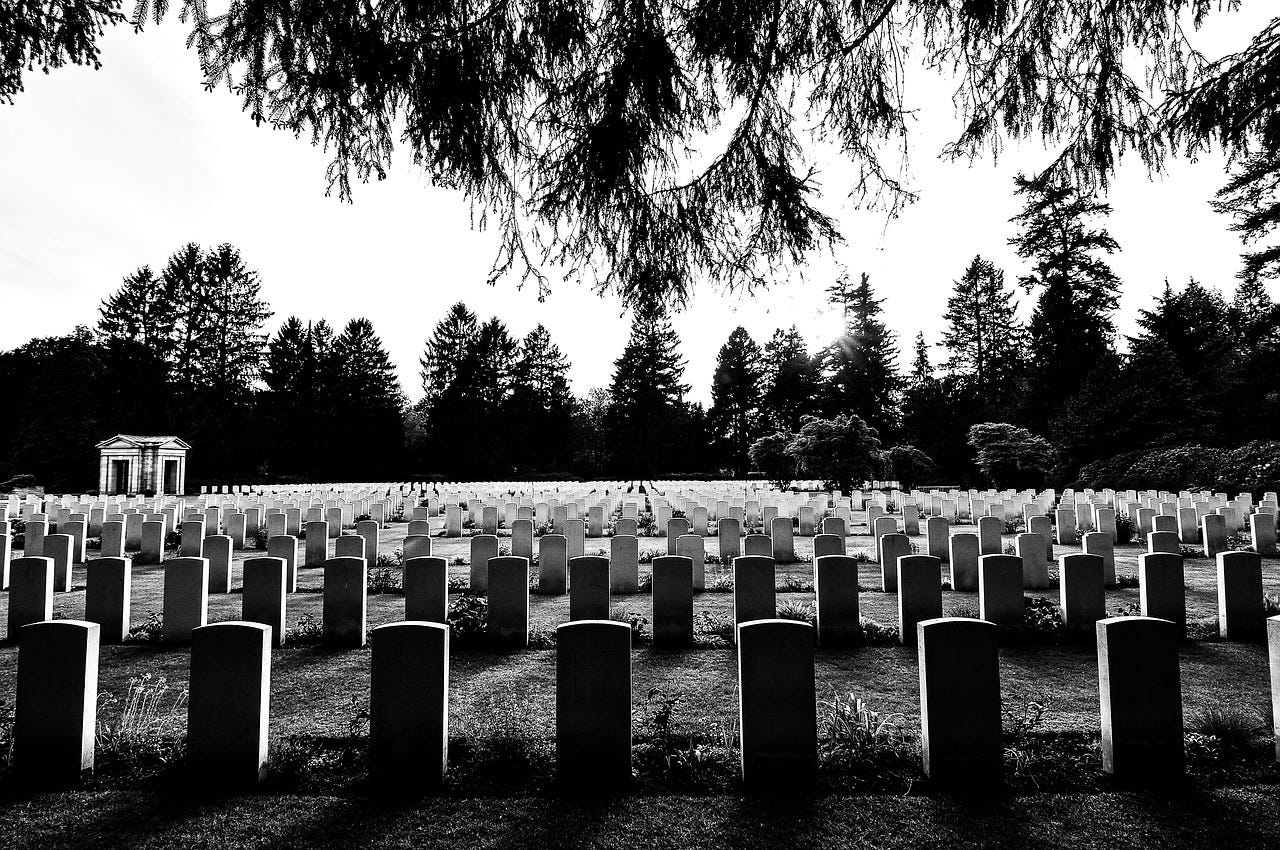'Do not be afraid of those who kill the body'
The message is one of fearlessness in the face of persecution, even that leading to death
INTRO: "I tell you, my friends, do not be afraid of those who kill the body but after that can do no more.” [Luke 12:2-4]
The message is one of fearlessness in the face of persecution, even that leading to death. Luke will continue to promote the holy Spirit in the Acts of the Apostles, as the power responsible for the guidance of the Christian mission and the source of courage in the face of persecution.
Memorial of Saints John de Brébeuf and Isaac Jogues, Priests, and Companions, Martyrs
Ephesians 1:15-23
Luke 12:8-12
In the Catholic Church, October 19 is designated the Memorial of Saints John de Brébeuf and Isaac Jogues, Priests, and Companions, Martyrs.
That’s quite a mouthful. I will admit to being somewhat uninformed about who is being memorialized and why they might be important. One name on the list seemed familiar. Brebeuf High School was a Catholic high school in northern Indianapolis, Indiana when I was growing up there. Founded in 1962, they were notable for being: 1) Catholic; 2) boys only (as a Jesuit prep school); and 3) a sometimes spoiler for other high school’s football or basketball seasons.
Image by Foundry Co
I looked them up. They still refer to themselves as Brebeuf Jesuit Preparatory School, admit a wide range of religions (now about 50% non-Catholic), young men and women, and according to their athletics page, are quite competitive in many sports at the state level. To travel further down this rabbit hole, go to https://www.brebeuf.org/
Yes, the school was named after Saint John de Brébeuf. Sounds French to me. Let’s find out what the readings didn’t tell us today.
Nearly 400 years ago
The French Jesuits Fathers Jérôme Lalemant and Jean de Brébeuf established the settlement Sainte-Marie among the Hurons in the land of the Wendat, near modern Midland, Ontario, in 1639. It was the first European settlement in what is now the province of Ontario. The fortified missionary settlement acted as a center and base of operations for Jesuit as they worked amongst the Huron. It also provided an example of a functioning European community to the Huron.
The Jesuits preached the Christian Gospel to the Huron, often adapting the story to local customs and symbols. One of the most famous examples of this was the "Huron Carol", a Christmas hymn written by Jean de Brébeuf. A translated version of this song remains popular in Canadian churches to this day.
The founding of the mission led to division amongst the Huron, with conflict between those who converted to Christianity and those who maintained traditional beliefs. Infectious disease, an unintended result of first contact between the Jesuits, their farm animals and the tribe, served to further the gap between the traditional Huron and the missionaries.
2 Indian tribes
While the Huron tribe spoke Iroquioan, they were not part of the Iroquioan League of 5 Nations. One of the member tribes, the Mohawks, particularly hated the Huron tribe and the French. The nations of the Iroquois Confederacy considered the Jesuits legitimate targets of their raids and warfare, as the missionaries were nominally allies of the Huron and French fur traders. Retaliating for French colonial attacks against the Iroquois was also a reason for their raids against the Huron and Jesuits. By 1649 the weakened Huron nation was little match for the strengthened Iroquois, who had used their trading alliances with the Dutch to gain firearms.
8 Jesuits
The North American Martyrs, also known as the Canadian Martyrs, were eight Jesuit missionaries from Sainte-Marie among the Hurons. They were ritually tortured and killed on various dates between 1642 and 1649. The first three were killed in what is now upstate New York, with the remaining 5 killed in what is now southern Ontario. They have subsequently been canonized and venerated as martyrs by the Catholic Church in 1930.
The eight missionaries were St. René Goupil (1642), St. Isaac Jogues (1646), St. Jean de Lalande (1646), St. Antoine Daniel (1648), St. Jean de Brébeuf (1649), St. Gabriel Lalemant, . St. Charles Garnier (1649), and (1649). St. Noël Chabanel (1649).
Perseverance and Martyrdom
Fr. Isaac Jogues was notable in his martyrdom, because it was a 4-year journey of torture, travel, and faith. Jogues was originally captured by the Mohawks in 1642 along with René Goupil and several Christian Hurons. In retaliation for comforting a tortured travelling companion, the Mohawk beat Jogues with sticks, tore out his fingernails, then gnawed the ends of his fingers until finger bones were visible. The war party then took their captives on a journey to a Mohawk village where they were marched through a gauntlet, consisting of rows of Iroquois beat the prisoners with rods and sticks. Afterward, the Iroquois forced Jogues and the prisoners onto an elevated platform where they were mocked. A captive Algonquin woman was forced to cut off Jogues' thumb. The torture continued as they were moved from one village to another. Throughout his captivity, Jogues comforted, baptized, heard confession from, and absolved the other prisoners. René Goupil died of injuries after almost 2 months of captivity and torture.
Isaac Jogues was held in captivity for almost a year until a Dutch businessman secured his release in the autumn of 1943. Jogues returned to France. Pope Urban VIII considered Jogues a "living martyr" and gave him dispensation to say Mass with his mutilated hand. Under Catholic Church law of the time, the Blessed Sacrament could not be touched with any fingers but the thumb and forefinger. Jogues was unable to follow this law after losing two fingers while in Iroquois captivity, resulting in the requirement for dispensation by the pope. After a year and a half in France, Jogues returned to the Quebec, then back to the land of the Huron.
He took on the role of French ambassador to the Mohawk, who held him in great suspicion. On 18 October 1646, the Mohawk killed Jogues with a tomahawk; they killed Jean de Lalande the next day and dumped both bodies in the Mohawk River.
Relations between the Mohawk and the French missionaries never improved.
Burning of Sainte-Marie
On June 16, 1649, the missionaries chose to burn the mission rather than risk it being desecrated or permanently overrun by Iroquois in further attacks. Father Paul Ragueneau wrote, “We ourselves set fire to it, and beheld burn before our eyes and in less than one hour, our work of nine or ten years.”
Today’s readings
In today’s first reading from the first chapter of Ephesians, St. Paul is giving a message of prayer and thanksgiving. He is clearly pleased to hear of the faith in Jesus and the love for all the holy ones the Ephesians were experiencing. Paul prays for wisdom and revelation about God and His purpose, emphasizing the hope we have in Him, the richness of His inheritance for believers, the immeasurable greatness of His power towards us, and the absolute supremacy of Christ over all things, including the church.
During the ministry of the French Jesuits to the Hurons, this kind of recognition of growing faith in the Indians would have contributed to the tenacity that the Jesuits displayed in continuing their mission in the face of possible death at the hands of the Iroquois.
The gospel reading for today is directly preceded with Jesus telling his disciples,
“There is nothing concealed that will not be revealed, nor secret that will not be known. Therefore whatever you have said in the darkness will be heard in the light, and what you have whispered behind closed doors will be proclaimed on the housetops. I tell you, my friends, do not be afraid of those who kill the body but after that can do no more.” [Luke 12:2-4]
The message is one of fearlessness in the face of persecution, even that leading to death. Part of our second reading gives assurances that the holy Spirit with be there when the going gets tough. Jesus continues:
“Everyone who speaks a word against the Son of Man will be forgiven, but the one who blasphemes against the holy Spirit will not be forgiven. When they take you before synagogues and before rulers and authorities, do not worry about how or what your defense will be or about what you are to say. For the holy Spirit will teach you at that moment what you should say.” [Luke 12:10-12]
When the Jesuits are forced to defend their actions, their task to spread the good news, the gospel of the Lord Jesus Christ, the holy Spirit will keep them safe.
Luke will continue to promote the holy Spirit in the Acts of the Apostles, as the power responsible for the guidance of the Christian mission and the source of courage in the face of persecution.
But John 15:13 probably said it best: No one can have greater love than to lay down his life for his friends.






